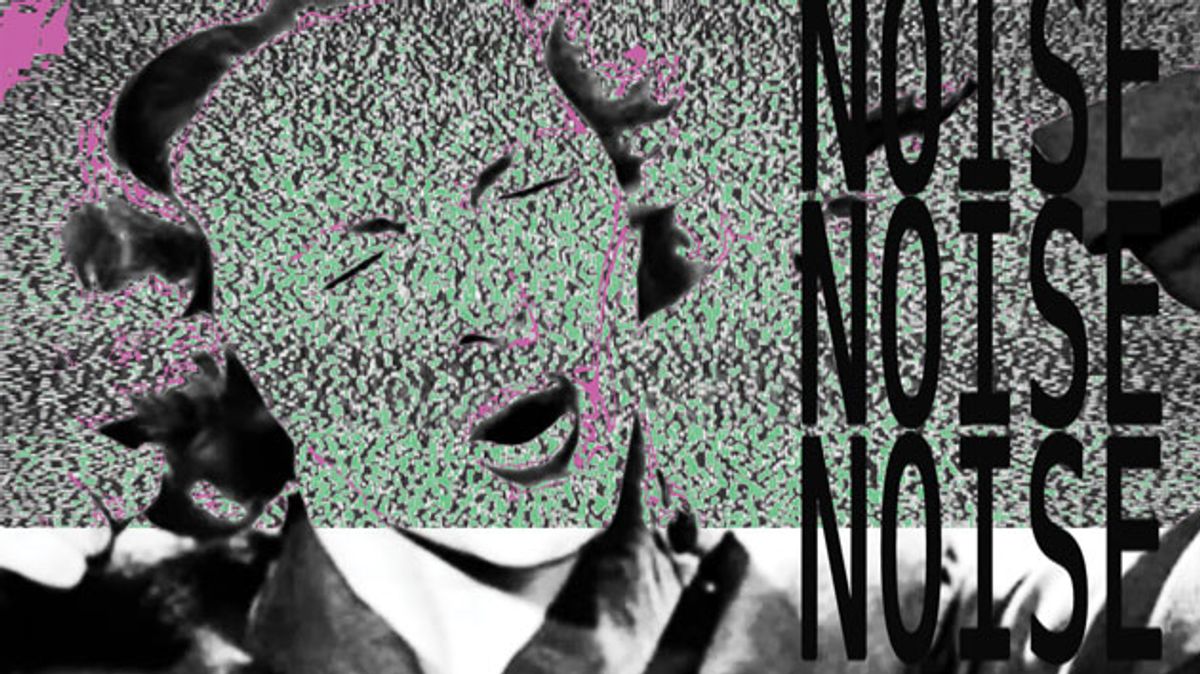
Today’s unwanted sounds may become the aural delights of tomorrow.
“Oh, the noise. Oh, the noise, noise, noise, noise.”
That word isn’t just a plague on the Grinch, my friends. It’s a plague on me. And since they asked me to write a column, you’re going to read about my feelings. I want to start with noise’s B-side: music.
Music (noun): Vocal or instrumental sounds combined in such a way as to produce beauty of form, harmony, and expression of emotion.
Or: The science or art of ordering tones or sounds in succession, in combination, and in temporal relationships to produce a composition having unity and continuity.
Let’s put on our open-minded hats here and consider what that means. I would argue that anything can be music. “No, sir. Some of it is noise,” you say. I’ll humor you for a second, but let’s refer to the dictionary again.
Noise (noun): A sound, especially one that is loud or unpleasant, or that causes disturbance.
Or: Irregular fluctuations that accompany a transmitted electrical signal, but are not part of it and tend to obscure it.
These two definitions are pretty clearly subjective. Noise can be music and vice versa. Music is a personal experience. That subjectivity is the root of the problem with calling things “noise.” The concept of noise as art, as an expression of something we all feel sometimes, is important. It reminds me of something Brian Eno wrote: “Whatever you now find weird, ugly, uncomfortable, and nasty about a new medium will surely become its signature. CD distortion, the jitteriness of digital video, the crap sound of 8-bit—all of these will be cherished and emulated as soon as they can be avoided.”
Eno makes a pretty bold statement, but one can extrapolate the concept out to guitar distortion. Overdrive is literally the sound of a machine that can’t keep up with demand, and fuzz started as a malfunctioning preamp that was soon adapted into a dedicated effects pedal.
In a pretty short time, what was “noise” associated with electric guitars became part of the form. Consider the most obvious example: Jimi Hendrix, who kicked off his 1967 album, Axis: Bold as Love, with a piece called “EXP” that was jam-packed with feedback and other “extended techniques.” Do I even need to bring up his rendition of “The Star-Spangled Banner?”
What “noise” means in American culture is pretty close to the dictionary definition, and we can trim it down further to “sounds you don’t like.” But if you’re willing to accept the dedicated experimentalist Hendrix as musical, then I think it’s fair to entertain the idea that noise, in general, can be musical. A better definition of noise, to me, is unintended or unwanted sound.
What about a field recording of the “noise” in a busy city? The chaos of nature? The symphony of humanity? If some random person was standing next to my recording rig, being bothered by the grumbles of traffic and far-off sirens, that person may hear noise, but I might be capturing music. It’s all about intention, friends.
If you accidentally stumble onto, let’s say, a YouTube video of a product that makes sounds you don’t like, is that noise? The sound is unwanted, for sure. It might even be unintended. After all, who among us hasn’t had their computer open up videos without our consent? Yep. Noise!
On the internet, of course, if you find a gear demo offensively noisy there is only one rational response, and that response is to leave a snark in the comments section. I mean, come on. You’ve had a rough day and now the internet brings you this noise?!?! Your anger is a gift and you’re going to share it with the rest of the world, or at least the product’s creator and the others who watch the video. This may or may not have happened to us.
What I’m getting at here is the relativity of noise versus music. Truth be told, I still get a little riled up when “noise” is used as a dirty word, because usually it means “I don’t like what you’re doing.” The connotation is that “noise” is less than music—less than a knock-off of the Chipmunks doing public domain songs on a flexi-disc that comes in an oversized birthday card. And less than the endless stream of sub-bass drops in the trailer for The 5th Wave.
Since those of us who get “noise” thrown at us don’t have a lot of hope for changing the rest of the world, we can only change how we react. I try to have a little editor in my head that adds lines. For example, “That’s just noise!” translates to “I don’t like what you’re doing.” And then the In-Headitor adds any of the following:
“And that’s OK.”
“But I don’t use pedals.”
“But I do like to eat kittens.”
And then I feel better. I would recommend an In-Headitor to anyone.
What I’m saying is: Don’t yuck someone else’s yum. The effects world is huge and messy and evolving. There really is something for everyone. Just keep the chorus pedals away from me.


